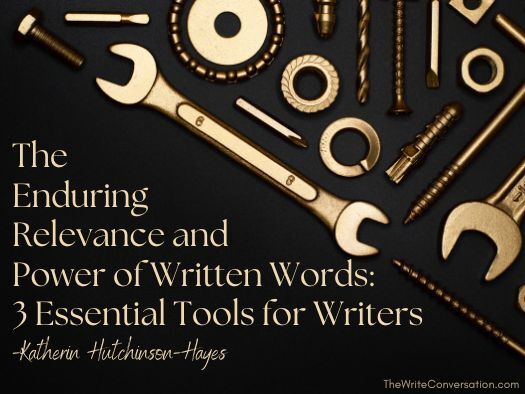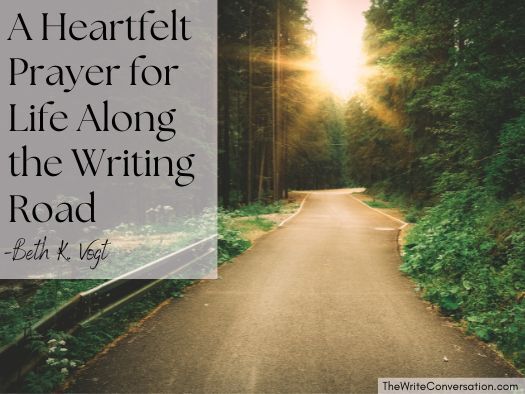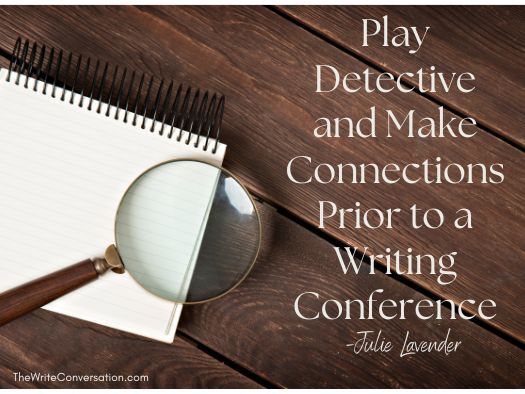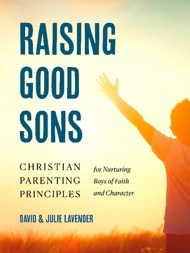Edie Melson's Blog, page 18
April 15, 2025
Spring Forward with Your Writing: It’s Time to Move in What God Has Planted

by Kennita (Kay) Williams
“There is a time for everything, and a season for every activity under the heavens.” Ecclesiastes 3:1 (NIV)
Spring is a season of awakening. What once looked lifeless begins to bloom. Hidden things rise. Seeds break through the soil, unapologetic and vibrant. Spring reminds us that delay is not denial—it’s preparation. And for writers and Christian communicators, this season invites a sacred momentum: It’s time to spring forward.
Too often, we treat our writing call like winter—quiet, buried, paused. We sit on the idea. We hesitate to send the email. We revisit the manuscript but let self-doubt talk us out of finishing the book. Meanwhile, the message God placed in us waits for our obedience, not our perfection.
What if this is the season when you finally steward the seed?
Ecclesiastes 3:1 tells us there is a time for everything. That includes your words. Your story. Your teaching. Your testimony. Everything God planted in you has a season, and spring is your holy reminder that dormancy does not equal death. It’s time to break through the soil.
Eternal Truths about Your Calling to Write
1. Your Calling Still Stands
Maybe you’ve wrestled with inconsistency. Maybe you feel like you’ve missed your window. But hear this clearly: the gifts and callings of God are without repentance (Romans 11:29). That means He hasn’t changed His mind about what He told you to write. He’s just waiting for you to move.
You may have paused. But heaven never put your purpose on hold. Even now, the Holy Spirit is watering what He’s planted in you. Let that truth reignite your confidence. Pick up the pen. Open the laptop. Revisit the vision. The time is now.
2. Small Steps Create Forward Motion
Springing forward doesn’t mean you need to write a 90-day devotional overnight. It simply means move. Take the next right step. Write the paragraph. Schedule the writing retreat. Submit the article. Begin the outline. Forward motion begins with small acts of obedience.
Ask yourself:What have I delayed that God has already greenlit?What one thing can I do this week to move forward in my calling?Where do I need to trust God more than my comfort zone?Sometimes the barrier isn’t a lack of creativity—it’s fear disguised as waiting. Don’t let “I’m still praying about it” become a spiritual excuse for procrastination.
3. Resurrection Power Lives in You
Spring is also the season we celebrate resurrection. The same power that raised Jesus from the grave lives in you (Romans 8:11). That power breathes life into dead places—including your confidence, creativity, and calling. You don’t have to do this in your own strength.
So many writers struggle with impostor syndrome, comparison, or feeling unqualified. But here’s the truth: God doesn’t call the qualified—He qualifies the called. And when He breathes on your words, they go further than you ever could on your own.
The dream is not dead—it’s dormant. Until now.
4. Write with Eternity in Mind
Spring forward, not just into activity, but into impact. We are not just content creators—we are kingdom communicators. Every blog post, devotional, podcast, or book is a seed that can shift atmospheres and bring souls closer to Jesus.
So don’t shrink back. You’re not writing to go viral—you’re writing to be faithful. And heaven measures fruitfulness, not followers.
Remember what Jesus said in John 15:16:
“You did not choose me, but I chose you and appointed you so that you might go and bear fruit—fruit that will last.”
Your words have eternal weight. Let that fuel you.
Final Encouragement:
This spring, may you rise like what God planted in you is ready—because it is. Don’t wait for the conditions to be perfect. Don’t wait until you feel 100% confident. Just move.
It’s time to spring forward. Not in striving, but in surrender. Not in hustle, but in Holy Spirit-led obedience.
Let the words flow.
Let the ideas blossom.
Let the calling bloom.
Your next step is the start of someone else’s breakthrough.
Prayer:Heavenly Father, thank You for the seeds You’ve planted within me. Forgive me for the times I’ve paused in fear or doubt. Today, I choose to trust You and spring forward in obedience. Breathe fresh life into every gift, idea, and assignment You’ve given me. Let my words bear fruit that glorifies You and blesses others. In Jesus’ name, Amen.
TWEETABLESpring Forward with Your Writing: It's Time to Move in What God has Planted from Kennita (Kay) Williams on @EdieMelson (Click to Tweet)
Dr. Kennita “Kay” Williams is a Visionary Leadership Coach, Author, Resilience Expert, and Wellness Advocate. Through her Business/Ministry, Clear Vision, she empowers leaders to navigate challenges, gain clarity, and lead with purpose. Dr. Kay’s mission is to inspire wholeness and healing. She can be contacted at www.clearvisionleader.com
Published on April 15, 2025 22:00
April 14, 2025
The Enduring Relevance and Power of Written Words: 3 Essential Tools for Writers

by Katherine Hutchinson-Hayes @KHutch0767
“Words illuminate pathways that we may not have seen otherwise.”
Several years ago, I was in Jamaica for a wedding, immersing in the vibrant culture and connecting with family. One of our stops was in a rural town where my father’s family lived. We stayed with my aunt, who lived a simple life without modern distractions like TV or the internet. After a few days of enjoying the quiet, we were thrown into an unexpected blackout during dinner. My aunt sprang into action, rummaging for candles and kerosene lamps to light up our surroundings. This moment turned an otherwise mundane visit into a memorable evening filled with laughter, old photo albums, and cherished stories. It highlighted how slowing down can help us reflect on what truly matters.
In today's fast-paced world, finding clarity and inspiration can be challenging. Writers are often inundated with competing voices, ideas, and information, making it hard to discern what resonates. This is where the power of words—both written and spoken—comes into play.
Here are three essential tools that embrace the enduring relevance of writing.Words Provide Clarity and Direction. Just as a well-crafted piece can guide readers through a narrative, the act of writing helps clarify thoughts and emotions. When we immerse ourselves in writing, we often uncover deeper insights about ourselves and our experiences. This clarity allows us to communicate more effectively with our audience.Words Create a Solid Foundation. Engaging consistently with writing provides a sturdy base for creativity. The more we write, the more we build our unique voice and style. This foundation fosters confidence, allowing us to tackle challenging topics and explore uncharted territory with our writing.Words Equip Us to Face Challenges. Writing serves as a powerful tool for processing life’s complexities and adversities. Crafting narratives helps us understand our experiences and articulate them with grace and resilience. It transforms our struggles into stories that can inspire and connect with others.
In a world filled with noise and distractions, the written word remains a steadfast source of clarity and inspiration. It illuminates paths we may not have considered and empowers us as creators and storytellers. Writing is a valuable companion whether you’re navigating personal challenges, seeking inspiration, or looking to communicate more effectively.
As you reflect on your own experiences with writing, consider its transformative power in shaping your perspective and fueling your creativity. Let’s commit to embracing the written word as a reliable source of direction and insight.
How has writing provided direction in your life? What inspires you to put pen to paper (or fingers to keyboard)? In what ways do you find the written word illuminating?
TWEETABLEThe Enduring Relevance and Power of Written Words: 3 Essential Tools for Writers from @KHutch0767 on @EdieMelson (Click to Tweet)
 Dr. Katherine Hutchinson-Hayes is a review board member and contributor to Inkspirations (an online magazine for Christian writers), and her writing has been published in Guideposts. Her work in art/writing is distinguished by awards, including the New York Mayor’s Contribution to the Arts, Outstanding Resident Artist of Arizona, and the Foundations Awards at the Blue Ridge Mountains Christian Writer’s Conference (2016, 2019, 2021). She is a member of Word Weavers International and serves as an online chapter president and mentor. She belongs to FWA (Florida Writers Association), ACFW (American Christian Fiction Writers), CWoC (Crime Writers of Color),
Dr. Katherine Hutchinson-Hayes is a review board member and contributor to Inkspirations (an online magazine for Christian writers), and her writing has been published in Guideposts. Her work in art/writing is distinguished by awards, including the New York Mayor’s Contribution to the Arts, Outstanding Resident Artist of Arizona, and the Foundations Awards at the Blue Ridge Mountains Christian Writer’s Conference (2016, 2019, 2021). She is a member of Word Weavers International and serves as an online chapter president and mentor. She belongs to FWA (Florida Writers Association), ACFW (American Christian Fiction Writers), CWoC (Crime Writers of Color),AWSA (Advanced Writers and Speakers Association), and AASA (American Association of School Administrators). She serves on the nonprofit organization Submersion 14 board and the 540 Writer’s Community board and is an art instructor for the nonprofit organization Light for the Future. Katherine hosts the podcast Murder, Mystery & Mayhem Laced with Morality. She has authored a Christian Bible study for women and is currently working on the sequel to her first general market thriller novel. Her thriller A Fifth of the Story will debut in February 2024 through Endgame Press.
Katherine flourishes in developmental editing and coaching writers. She has a twenty-year career in education, leadership, and journalism. Katherine freelances as an educational consultant for charter schools, home school programs, and churches. In this role, she has written and edited curriculum, led program development, and helped manage growth facilitating and public relations. She also works as an editor and book coach through her consulting business. Katherine provides skill, accountability, and professionalism so clients can begin, develop, and finish their writing projects for publication.
Published on April 14, 2025 22:00
April 13, 2025
The Pooh Crew—Real-life People Every Writer Needs in Their Writing Life

by Edie Melson @EdieMelson
I’m a big fan of Winnie the Pooh—the original A.A. Milne version. I’m not opposed to the earlier Disney animation versions, but I have sweet memories of my dad reading me the original book at night before bed.
Truthfully, it takes a community to be a writer. Very—VERY—few every succeed alone. Today I want to take a tongue-in-cheek look at who a writers needs in their Pooh Crew.
Let’s take a stroll through the hundred acre wood and find some creative company inspiration.
7 Characters—From Winnie the Pooh—Who Can Help You Succeed on Your writing Journey
1. Pooh: The Encourager Who Has Your Best at Heart
Pooh isn’t the smartest or the most organized, but he shows up with love, snacks, and quiet faith in his friends. Every writer needs a Winnie the Pooh—someone who doesn’t have to understand the intricacies of plot arcs or passive voice, but who believes in you anyway. This person is quick to encourage and insightful when it comes to reasons you will succeed! A Pooh will remind you why you love writing and help you fend off the Heffalump doubts that creep into the dark times of discouragement.
Your Pooh says: “You’re doing wonderfully. Let’s have a little something to celebrate.”
2. Piglet: The Quiet and Consistent Cheerleader
Piglet is small, anxious, and brave in ways he doesn’t always recognize. Every writer needs a Piglet—someone who cheers you on even when they’re scared for you. They may not make a lot of noise, but their quiet loyalty keeps you grounded. They’re the friend who sends you a text saying, “I read that chapter and cried—in a good way.”
Your Piglet says: “You may not think it’s good, but I believe in it. And in you.”
3. Tigger: The Adventurer with Boundless Energy
Tigger bounces in like a creative muse on espresso. He’s always up for an adventure and doesn’t know the word no. The Tigger in your life will spur you on to heights of bravery and fun you never considered possible.
Your Tigger says: “Why not make your villain a time-traveling wombat? C’mon, it’ll be fun!”
4. Owl: The Wise Editor
Owl may be a little long-winded, but he knows things. Every writer needs an Owl—someone with knowledge of grammar, structure, and how to actually write a query letter. Owls are mentors, editors, or critique partners who guide you with their insight. Just be ready to check your own ego at the door and accept the wisdom this caring friend has for you and your writing.
Your Owl says: “This sentence structure is sound, but let’s examine the thematic arc in Act Two.”
5. Eeyore: The Realist
Eeyore is known as the gloomy one. But truthfully, he’s a realist. And he’s not afraid to tell us the hard things. Eeyores may sound pessimistic, but they’re often the ones who help you strengthen your work by pointing out what’s not quite right. Plus, they stick around even when the skies are grey.
Your Eeyore says: “It’s not terrible. But maybe try rewriting the second half.”
6. Rabbit: The Organizer
Rabbit is fussy, schedule-obsessed, and always trying to wrangle chaos into order. Every writer needs a Rabbit—someone who helps you stay accountable, meets deadlines, and keeps your goals on track. Rabbits may nag, but they’re also the reason your draft ever gets finished.
Your Rabbit says: “Stop editing Chapter One again. The deadline’s Tuesday.”
7. Christopher Robin: The Inner Child
Finally, don’t forget the you in your crew. Christopher Robin reminds us that imagination is sacred. As writers, we must protect our inner child—the part of us that believes in magic, plays with language, and tells stories not for fame or likes, but because they matter. Let Christopher Robin lead you back to wonder when the writing feels more like work than play.
Your Inner Christopher Robin says: “You’re braver than you believe, stronger than you seem, and smarter than you think.”
Bottom Line
We all need a writing crew—a community that’s made up of people who want to see us succeed and have fun doing it.
TWEETABLE The Pooh Crew—Real-life People Every Writer Needs in Their Writing Life from @EdieMelson (Click to Tweet)
 Edie Melson is a woman of faith with ink-stained fingers observing life through the lens of her camera. No matter whether she’s talking to writers, entrepreneurs, or readers, her first advice is always “Find your voice, live your story.” As an author, blogger, and speaker she’s encouraged and challenged audiences across the country and around the world. Her numerous books reflect her passion to help others develop the strength of their God-given gifts and apply them to their lives. Connect with her on her website, through Facebook, Twitter, and Instagram.
Edie Melson is a woman of faith with ink-stained fingers observing life through the lens of her camera. No matter whether she’s talking to writers, entrepreneurs, or readers, her first advice is always “Find your voice, live your story.” As an author, blogger, and speaker she’s encouraged and challenged audiences across the country and around the world. Her numerous books reflect her passion to help others develop the strength of their God-given gifts and apply them to their lives. Connect with her on her website, through Facebook, Twitter, and Instagram.
Published on April 13, 2025 22:00
April 12, 2025
Cut Out the Writing Cancers

by Martin Wiles @LinesFromGod
“We need to go into another room for this.”
I didn’t like the sound of those words. The dermatologist had already frozen a couple of places on my arms, but suddenly, the present room wouldn’t work. I followed him to another room, where he instructed me to lie on the table. Something else a little strange.
The next thing I knew, he gave me a shot that numbed the area he planned to work on. Soon, I couldn’t feel a thing—which, by the way, was a good thing. By this time, I was getting quite nervous. Then came the sound. I almost thought I was in a dentist’s office, where the sound is the worst thing.
After what seemed like an eternity, he finished. I now had an impressive bandage on the back of my ear. The place had to remain covered for a certain period. Once I removed the bandage, I had to lather the area with Vaseline until it healed.
I remember my wife removing the bandage and the surprise on her face. The area was the size of a quarter. Another surprise came when the test results returned: basil cell carcinoma. This diagnosis required two years of rechecks to ensure the doctor had removed it all. Thankfully, he got it all the first time—no further cancer.
I read the Bible through each year, but I cringe when I come to the book of Leviticus. “The Lord called to Moses from the Tabernacle and said to him, ‘Give the following instructions to the people of Israel’” (Leviticus 1:1-2 NLT).
The instructions seem never to end—instructions after instructions about sacrifices, offerings, and relationships. Few of these have any bearing for today, but they held great importance for God’s people at the time. The bottom line of God’s instructions concerned cutting out any sin cancer from their lives that hindered their service to Him.
Sin resembles cancer in that it grows and will eventually kill us if not dealt with. Thankfully, Jesus dealt with it on our behalf. All we must do is believe He paid for our sins and then live as if He has removed the cancer from our lives, which He has.
Christ sends His Spirit to dwell in us and empower us to live above the cancer-infested life. No longer must we live with the cancer of sinful actions controlling us. We won’t be perfect, but God’s forgiveness is always available. God also clothes us in Christ’s righteousness when we trust in Christ, and this covers all our sins—now and forever.
But some cancers aren’t physical or spiritual. These cancers will kill—well, perhaps maim—our writing. They are cured not by a knife but by remembering the writing pyramid. Specific nouns always trump plain nouns. German Shepherd presents a better picture than dog. And vivid verbs? They paint pictures and sounds that forms of the verb be (am, is, are, was, were, be, being, been) never can. “He slumped down the hall” is better than “He walked down the hall.”
Once we’ve mastered the specific nouns and vivid verbs, we can move on to using the best adjectives and eliminating unnecessary adverbs—which some argue are most adverbs, at least the ly ones. When describing a house that has existed for a while, ancient is better than old. Adverbs that tell when are essential. If little Tommy’s dad plans to take him fishing, little Tommy needs to know when. Otherwise, he might get ready on the wrong day or at the wrong time on the right day.
While plot elements are essential to any good work of fiction—some of which we can use in nonfiction—and while books-a-plenty exist on the subject, let’s not forget to incorporate the elements of the simple writing pyramid into whatever we write. When we do, we’ll eliminate the cancers that make our writing less than excellent.
TWEETABLECut Out the Writing Cancers from Martin Wiles (@LinesFromGod) on @EdieMelson (Click to Tweet)
 Martin Wiles lives in Greenwood, SC, and is the founder of Love Lines from God. He is a freelance editor, English teacher, pastor, and author. He serves as Managing Editor for both Christian Devotions and Vinewords.net and is an instructor for the Christian PEN (professional editor’s network). Wiles is a multi-published author. His most recent book, Hurt, Hope and Healing: 52 Devotions That Will Lead to Spiritual Health, is available on Amazon. He and his wife are parents of two and grandparents of seven. He can be contacted at mandmwiles@gmail.com.
Martin Wiles lives in Greenwood, SC, and is the founder of Love Lines from God. He is a freelance editor, English teacher, pastor, and author. He serves as Managing Editor for both Christian Devotions and Vinewords.net and is an instructor for the Christian PEN (professional editor’s network). Wiles is a multi-published author. His most recent book, Hurt, Hope and Healing: 52 Devotions That Will Lead to Spiritual Health, is available on Amazon. He and his wife are parents of two and grandparents of seven. He can be contacted at mandmwiles@gmail.com.
Published on April 12, 2025 22:00
April 11, 2025
A Heartfelt Prayer for Life Along the Writing Road

By Beth Vogt @BethVogt
My writing life is woven through with prayer. Little prayers like, “Help me finish this scene, God” to flat on my face prayers like, “Wasn’t expecting that, God. What do I do now?”
Today I’m sharing a writers’ prayer with you. I hope it encourages your heart.
God, You are Elohim, Our Creator God. You spoke the world into existence, so You know about the power of words. From the beginning of time, You designated Your Son as the Word, the life and the Light.
For some delightful reason you tucked that part of your image inside me. You’ve given me an insatiable love for words. The desire to wrestle with them, to mold them into truths that reveal not just what I want to say, but what needs to be said so that people hear the Truth. Yes, I want readers to be entertained, but I want my words to comfort them. Inspire them. Challenge them. Change them.
God, help me to cling to the joy of writing when reality threatens to tarnish the dream. Help me persevere when the words stall between my brain and the page. Let me be content with a less than perfect manuscript. And help me sift through all the need-to-be-tossed words to discover the best words.
May what I write be less about me and more about the blessed opportunity to reveal You to the world. May I remember You desire to collaborate with me. Help me to slow down and ask You for inspiration — and then stay still long enough to listen to what You have to say.
I don’t want to be jealous of other writers’ success, but I’m human and I know envy could mar my relationships with writer friends. You know my self-seeking heart, and how I stumble over others’ awards and accolades. Help me not to settle my heart on “what about me?” Let me be the first to celebrate other writers. Please create a clean heart in me, God, one that considers others more important than myself. One that freely happy dances when another writer signs a contract or lands on the best-seller list.
Thank you, God, for creating me to be a writer. May I magnify Your name in all my work. And when all is said and done — and written — I pray You have used my journey along the writing road to transform me to look less like me and more like You. Amen and Amen
TWEETABLEA Heartfelt Prayer for Life Along the Writing Road from @BethVogt on @EdieMelson (Click to Tweet)
 Beth K. Vogt believes God’s best often waits behind the doors marked “Never.” She’s authored 15 novels and novellas, both contemporary romance and women’s fiction. Beth is a Christy Award winner, an ACFW Carol Award winner, and a RITA® finalist. Her newest contemporary romance novel, Dedicated to the One I Love, released June 20, 2023. Her novel Things I Never Told You, book one in her Thatcher Sisters Series by Tyndale House Publishers, won the 2019 AWSA Golden Scroll Award for Contemporary Novel of the Year. An established magazine writer and former editor of the leadership magazine for MOPS International, Beth blogs for Learn How to Write a Novel and The Write Conversation and also enjoys speaking to writers group and mentoring other writers. She lives in Colorado with her husband Rob, who has adjusted to discussing the lives of imaginary people. Connect with Beth at BETHVOGT.COM.
Beth K. Vogt believes God’s best often waits behind the doors marked “Never.” She’s authored 15 novels and novellas, both contemporary romance and women’s fiction. Beth is a Christy Award winner, an ACFW Carol Award winner, and a RITA® finalist. Her newest contemporary romance novel, Dedicated to the One I Love, released June 20, 2023. Her novel Things I Never Told You, book one in her Thatcher Sisters Series by Tyndale House Publishers, won the 2019 AWSA Golden Scroll Award for Contemporary Novel of the Year. An established magazine writer and former editor of the leadership magazine for MOPS International, Beth blogs for Learn How to Write a Novel and The Write Conversation and also enjoys speaking to writers group and mentoring other writers. She lives in Colorado with her husband Rob, who has adjusted to discussing the lives of imaginary people. Connect with Beth at BETHVOGT.COM.
Published on April 11, 2025 22:00
April 10, 2025
Writing Conferences: Four Tips to Enhance the Conference Experience

by Lilka Raphael @Lilka_Raphael
Learning never exhausts the mind—Leonardo da Vinci
There are conferences available for nearly every genre. Still, many writers fail to make the most of their experience. Here are my tips to maximize the bang for your buck at your next writers conference.
Maximize Your Next Writing Conference Experience with These Four Tips
Be ApproachableThis sounds simple, but it is surprisingly difficult for introverted authors. Large crowds quickly become overwhelming. However, a sincere smile is all it takes to get you in the game. You will find plenty of people eager to engage you in conversation. Don’t shy away from them. Speak up regarding your projects and goals. If necessary, rehearse an elevator pitch to build your confidence.
Be IntentionalPlan your day. Research the faculty. Select the classes you want to attend if there is a specific objective you need to meet. Arrive early when a speaker is exceptionally popular to ensure a seat. Polish your One Sheet before you arrive. Resolve to meet at least three people a day or sign up for appointments. Carry business cards with your photo to help others remember you. Most importantly, follow up with the writers and professionals you meet. Meaningful connections often evolve from deliberate choices.
Ask QuestionsMost classes include Q & A sessions. Take advantage of them. If the thought of speaking aloud in class is terrifying, address the speaker directly after the class ends. However you do it, don’t monopolize the time by asking a five-part question. Give other writers a chance to participate as well. While speaking with faculty, allow other people to join the conversation. Their questions and comments may provide valuable insight.
Be FlexibleDon’t despair if you don’t get the appointment you want. This is not a do or die scenario. Conference coordinators are well aware that there are limited slots for sought after agents and editors. Take advantage of mealtimes and social gatherings when the faculty is available. Elevator pitches work! Patience and professionalism will reward you with the opportunity to meet them.
Flexibility applies to classes as well. Occasionally, two classes you want are offered at the same time. Don’t become frustrated. Instead make the most of the one class you can attend. The handouts for all classes are generally available to download. Reach out to the instructor you didn’t meet if you have a specific question. The faculty members are usually receptive. Alternatively, you may find no classes of interest during a particular time slot. Attend one of them anyway. You may learn something surprisingly helpful. One novelist realized that article writing might accelerate her path to publication.
Learn, laugh, and renew your love for the craft. Still, don’t squander opportunities to maximize your return on this investment. A great attitude, inquisitive nature, and willingness to pivot can ensure a productive and satisfying conference experience.
A wise man will hear and increase learning, And a man of understanding will attain wise counsel, Proverbs 1:5 NKJV
TWEETABLEWriting Conferences: Four Tips to Enhance the Conference Experience from @Lilka_Raphael on @EdieMelson (Click to Tweet)
 A Florida native, Lilka Finley Raphael has been a licensed pharmacist for over thirty years. Her passions for writing, gardening, and photography prompted her to share her experiences and life lessons on her blogs B Is for Blessed and God, autism, & me. You can learn more about her at lilkaraphael.com
A Florida native, Lilka Finley Raphael has been a licensed pharmacist for over thirty years. Her passions for writing, gardening, and photography prompted her to share her experiences and life lessons on her blogs B Is for Blessed and God, autism, & me. You can learn more about her at lilkaraphael.comLilka’s greatest achievements are her two adult sons who have flown the nest. Happily married for thirty-two years, she lives east of Atlanta with her husband, Rod. They now share their home with two German Shepherds—Holly and Ivy—and one naughty kitty, Moxie.
Published on April 10, 2025 22:00
April 9, 2025
Play Detective and Make Connections Prior to a Writing Conference

by Julie Lavender @JLavenderWrites
Who’s going to the Blue Ridge Mountains Christian Writers Conference next month?
Me! Me! Me! And, I can’t wait.
I missed almost all of last year’s conferences, because I had two darling grandbabies on the way. My two daughters were pregnant with grands number two and three.
It feels like so long since I’ve been to a meeting of writing minds.
My excitement reminds me of the weeks I anticipated a trip to New York to learn more about writing for Guideposts. I, along with eleven other writers, won a Guideposts writing contest in 2014. Our “prize” awarded us a five-day intensive workshop with top editors in the Guideposts family.
My emotions bounced around like my hubby’s truck on a south Georgia dirt road after the rain, Anxiousness and fear climbed in the front seat with me most often. To combat my nerves, I formulated a plan that will benefit you as you prepare for the conference.
My idea gave me the opportunity to fulfill my secret dream of being a detective or perhaps a spy. (I prefer not to use the word “stalker.”) I searched online for the names of other Guideposts writers, specifically previous contest winners. Once I located their names, I searched for them online and sent messages. I introduced myself, shared our Guideposts commonality, and then asked questions about their workshop experience.
I connected with at least two dozen former contest winners. Not only did I make new friends almost immediately because of our Guideposts and writing connection, but I gained valuable info about the upcoming workshop that stilled my nerves and put me at ease.
Put your best detective skills to work prior to the conference to enhance your experience. My idea leans more toward conference newbies, but longtime attendees can also profit from these suggestions.
Here are a few tips to get you started. I’ll specifically reference the Blue Ridge Mountains upcoming conference, but you can apply this to any conference.
Make Writing Connections by Playing Detective
1. Hashtag Hunts.
Search social media for the BRMCWC hashtag. Scroll to find posts and read carefully to see if anything resonates with your own writing journey. (For example, just before writing this, I searched #BRMCWC. One post that came up included my already-friend Christine. Let’s pretend we aren’t friends yet. She posted about winning a Foundation Award for historical fiction. If I was a historical fiction writer, I’d most definitely message her to ask questions about favorite sessions she attended, editors she queried, and more about her journey as an historical fiction writer. If Christine plans to attend the conference this year, I’d ask if she’d like to meet for coffee during the conference.
2. Website Wanderings
Study the Blue Ridge Mountains Christian Writers Conference website in detail. Find out everything you can about the conference, including the faculty and staff. Especially those you plan to pitch or meet with. Let the BRMCWC schedule lead you to personal websites to further your knowledge about faculty attendees.
3. Key Word Keepers
Find words indicative of the conference and search online for pertinent, related articles that might help you make connections. For example, once you’ve perused the BRMCWC website, you’ll know their awards for published works are called Selahs. A Google search for the words “Selah finalists” pulls up a Facebook video shared by contest director Eva Marie Everson with the finalists for each category.
Jot down the names of winners in your writing genre of choice and use your detective skills to find them online. Send a message to the winners in your area and ask related questions about their conference experience.
Using a few detective skills prior to the conference to make connections and ask questions enhances your conference experience and stills your jitters.
Here are a few questions you might consider asking once you’ve made connections.
1. What can I do beforehand to enhance my conference experience? What can I do at the conference to have a great experience? What should I do after the conference as a follow-up?
2. What clothing items are must-haves and how should I dress to feel professional and comfortable?
3. What was your favorite part about the conference?
4. How’s the best way to make connections while at the conference?
5. What classes or sessions do you suggest I attend to learn more about (fill in the blank).
6. Can you tell me about mealtimes so I’ll know best how to plan ahead?
Let a little detective work lead you to experienced conference attendees. Reach out to a handful of those in your writing area or interest and make connections. Ask questions to help you prepare for the conference, but be respectful of your acquaintances’ time.
You may still feel like you’re on a bumpy dirt road of emotions while attending the conference, but at least your pickup truck is loaded with new friends and valuable information to enhance the experience and quiet your nerves.
Reach out to me before the conference or look for me there. We’ll leave my hubby’s truck at home, but I’ll bring my minivan with plenty of room to carry home the memory of new friends and first-time connections.
Can’t wait to see you! (Or better yet, join the conversation below and tell me what you’re doing to prepare for Blue Ridge!)
TWEETABLEPlay Detective and Make Connections Prior to a Writing Conference from @JLavenderWrites on @EdieMelson (Click to Tweet)
 Julie Lavender is excited to launch her newest book this month. Raising Good Sons: Christian Principles for Nurturing Boys of Faith and Character, coauthored with her husband, David, shares fifteen principles and joins her other Penguin Random House Books: Children’s Bible Stories for Bedtime and Strength for All Seasons: A Mom’s Devotional of Powerful Verses and Prayers.
Julie Lavender is excited to launch her newest book this month. Raising Good Sons: Christian Principles for Nurturing Boys of Faith and Character, coauthored with her husband, David, shares fifteen principles and joins her other Penguin Random House Books: Children’s Bible Stories for Bedtime and Strength for All Seasons: A Mom’s Devotional of Powerful Verses and Prayers.  Raising Good Sons:
Christian Parenting Principles for Nurturing Boys of Faith and Character
by David and Julie Lavender
Raising Good Sons:
Christian Parenting Principles for Nurturing Boys of Faith and Character
by David and Julie LavenderThe essential gospel-led parenting book for raising good sons
In a world filled with countless parenting books and ever-changing advice, Christian parents often seek a single, unwavering source of guidance: God’s Word. In Raising Good Sons, readers will learn how to lean on God while raising boys who are not only resilient and morally grounded but also deeply rooted in their faith. With heartfelt encouragement and scriptural wisdom, this book will become your trusted companion, reminding you that with God you are never lost or alone in your parenting journey.
Raising Good Sons features:Essential Christian parenting principles that keep you grounded and anchored as you raise your son no matter what stage you’re in. Relevant topics and issues that all parents of sons are navigating, such as building a personal relationship with Jesus, modeling godly behavior, learning respect, showing love, and much more.Biblical lessons in action that can be applied right away.Inspiring and supportive prayers that remind parents to keep God at the center.
Published on April 09, 2025 22:00
April 8, 2025
Writing Tips: Query Letter Questions Answered

by Linda Gilden @LindaGilden
Recently I was teaching about articles at a writer’s conference. Just before we ended someone asked, “I’ve heard about query letters. Can you tell me quickly what that is and when to use a query letter?”
Well, one thing I can’t stand is to think that anyone would leave my class with unanswered questions. My remark was, “Sure, but listen fast so you can get to your next class!” I quickly made a list of questions in my head so I wouldn’t forget anything they needed to know about query letters.
10 Common Questions about Query Letters
1. What is a query letter?
A query letter is just what it says—a query or question in the form of a letter. The question you are asking is “May I send you my article on speculation.”
2. Do I need a query letter for everything I submit to a publisher?
Unless you have met an editor or publisher and he or she has requested your material, you need to write a query letter. If you have met them at a conference, you may use a cover letter. A cover letter reminds the editor he requested to see your work.
3. To whom should I address my query letter?
The query letter should be addressed to the editor who would accept your work.
4. Is it okay to say “Dear Editor?”
Always address your query letter to the editor by name. If you don’t know who that is, find out before you write. You can check the website, magazine masthead, or current market guide. You can also call the publishing house and ask who the proper editor for your manuscript is. If the name is Pat Smith and you do not know if Pat is Mr. Smith or Ms. Smith, begin the letter with “Dear Pat Smith.”
5. When can I follow up on my query letter?
Editors are very busy, and you want to give them time to read your query. Allow at least the amount of time stated in the guidelines before following up with a brief politely inquiring email.
6. What about e-queries?
E-queries are becoming more and more acceptable. However, everyone doesn’t use them. Check the market guide or the publishing house to find out.
7. Should the article be complete when I write a query letter?
Not necessarily. However, you must have done enough research for your article to know where you are going with it. Just be sure it will fall within the acceptable number of words according to the guidelines of the magazine.
8. Isn’t it risky to send a query letter before finishing my work?
Querying gives the editor the opportunity to give feedback on your idea. He or she may love the idea but need a slightly different approach to the subject. So, querying first actually saves you time. You know what the editor wants before you start writing. Just be realistic about the time you promise to deliver the first article.
9. How long should my query letter be?
Your query letter must be kept to one page.
10. What is the best format for query letters?
A query letter should be three or four paragraphs, single-spaced, with a space between paragraphs. Use standard, nice weight, 8 ½ x 11 paper. Write on your letterhead in business format. If you don’t have letterhead stationery, you can create one on your computer. Canva.com has some great examples of letterheads and can help you create yours.
The first paragraph should be the hook. It should make the editor want to read more. You could possibly use the first paragraph of your article. Statistics, questions, and anecdotes are excellent ways to begin.
Remember your query letter is the editor’s introduction to you and the quality of your writing.
The second paragraph should be why this article is needed and why you are the best person to write it, and any related qualifications you want to include.
The third paragraph should tell the nuts and bolts of your article. This includes how many words, when it could be completed (six weeks is a reasonable time), and how soon you could get it to the editor.
Be sure to thank the editor for his or her time and the opportunity to submit your work to their publication. If you are submitting by mail, include a self-addressed, stamped envelope.
A good query is your letter of introduction to an editor. It must show you are a professional and you write with excellence. A good first impression will open doors and create opportunities. Make sure your query is a “door opener” and not a “door closer.”
Moira Allen reminds us, “The ability to write a good query is one of the most important skills in the writer’s toolbox.” Do you agree with Moira? I certainly do!
TWEETABLEWriting Tips: Query Letter Questions Answered by @LindaGilden on @EdieMelson (Click to Tweet)
 Linda Gilden is an award-winning writer, speaker, editor, certified writing and speaking coach, and personality consultant. Her passion is helping others discover the joy of writing. Linda recently released Articles, Articles, Articles!and is the author of over a thousand magazine articles and 17 books including the new LINKED Quick Guides for Personalities. As Director of the Carolina Christian Writers Conference, Linda helps many writers take the next step in reaching their writing goals. Linda’s favorite activity (other than eating folded potato chips) is floating in a pool with a good book surrounded by splashing grandchildren—a great source of writing material! www.lindagilden.com
Linda Gilden is an award-winning writer, speaker, editor, certified writing and speaking coach, and personality consultant. Her passion is helping others discover the joy of writing. Linda recently released Articles, Articles, Articles!and is the author of over a thousand magazine articles and 17 books including the new LINKED Quick Guides for Personalities. As Director of the Carolina Christian Writers Conference, Linda helps many writers take the next step in reaching their writing goals. Linda’s favorite activity (other than eating folded potato chips) is floating in a pool with a good book surrounded by splashing grandchildren—a great source of writing material! www.lindagilden.com
Published on April 08, 2025 22:00
April 7, 2025
Who Are You as a Writer on the Page?

by Cindy K. Sproles @CindyDevoted
Every year, there seems to be a particular buzzword(s) from conference to conference. This year, I’ve heard the word “voice.” I addressed this some time back, but since it was coming to light again, I thought it best to dedicate a few words to “voice.”
What is a Writer's Voice?
When I attended my first conference some twenty-five years ago, it seemed every conference teacher asked, “What is your voice?” The obvious thought that came to mind was, “Can’t you hear my voice? I’m speaking.” Did I mention how green I was in the writing world? I went to a poor county school in Tennessee that only offered students basic English. Until my senior year, when we had a literature class, there were no creative writing classes. By then, it was too late. That meant I didn’t have a clue what voice was, or point of view, or characterization. Things seemed very literal to a gal who only had basic English, and this writing world had its own lingo.
I remember standing in the lunch line at Blue Ridge with words written on my palm, asking folks how long they’d been attending. If it were two years or more, I’d hold out my hand and ask, “Can you tell me what this is?” Just a side note. I teach industry lingo to new conferees at conferences for this very reason. I never want anyone else to feel like I did, having to walk up to folks and ask what things meant.
I happened upon this wonderful lady named Gayle Roper. She was a darling, and though I didn’t realize she was an author and faculty member, she was kind enough to take my palm and start answering my questions. That afternoon, I attended a class I’d preregistered for, and Gayle was the teacher. She sat next to me with my work and told me that people who read my work would long to have a voice as strong as mine. When I asked what that meant, she smiled. “Honey, your voice is you on the page. Nothing more, nothing less. Just you authentically on the page, and this writing is about as authentic and unique as anything I’ve ever read.” If you know me, then you know I write Appalachian historical, and I’m a mountain girl. My voice would be unique and different. It seemed appropriate that my “voice” was clear in my writing.
Voice is You on the Page
For the first time, I understood what voice was. Gayle made it plain and simple. Voice is you authentically and raw on the page. It made sense that my voice would ring true in writing fiction, but what about non-fiction? Did the meaning change?
Absolutely not. I wouldn’t write Appalachian historical dialect in my non-fiction devotions, but I would still write me. In other words, how I phrase things, the words I use, and the emphasis I might state would still hit the page—my vulnerability and authenticity, honesty in what and how I write. The message I sought to convey would still be me. Learning how to dial up a more influential voice or when to soften it down for a more serious tone was something I had to learn, but once again, this is part of learning the craft of writing.
Gayle said it perfectly. Your voice is you on the page. It’s really that simple. Don’t be afraid to be you. The more comfortable you become with yourself on the page, the more your voice will stand out.
The Writer’s Mistake
The hard part about learning voice is breaking the mindset of the newer writer. When they first begin to write, there is this pressure to write very proper — or overwrite. In other words, they try too hard to write to impress rather than phrasing things and using words that sound like themselves. Their style and words sound stilted and stiff, even overthought. This is the biggest mistake I see as new writers learn the craft. I don’t think it’s intentional. I think it’s what new writers believe is expected. Getting writers to understand to take a deep breath and relax. Choose good words, not stiff words, and just be who they are. Relaxing on the page will take dull and dry work and make it sing.
Be an Individual
When I started high school, my mother pulled me aside and gave me some advice. She encouraged me to always be myself, even if it went against the grain of what everyone else was doing. Obey the rules, but hold onto who you are. You are special and unique. Those words have been true for me for over 50 years in whatever endeavor I pursue. I pass those words on to you. When you write, be an individual. Be yourself. When you do that, authenticity and vulnerability pour onto the page. People will relate to you and connect.
When you find yourself in your writing and become comfortable with who you are, your words will change lives. Those words will beautifully pour onto the page and perhaps even surprise you. And if I haven’t repeated this enough in this post, I will say it once more for good measure. Your voice is you on the page. Now, go be you.
TWEETABLEWho Are You as a Writer on the Page? from @CindyDevoted on @EdieMelson (Click to Tweet)
 Cindy K. Sproles is an author, speaker, and conference teacher. Having served for a number of years as a managing editor for Lighthouse Publishing of the Carolinas and Ironstream Media, Cindy now works as a mentor, coach, and freelance editor. She is the co-founder of Writing Right Author Mentoring Services with Lori Marett and she is the director of the Asheville Christian Writers Conference. Cindy is also the co-founder of Christian Devotions Ministries and WWW.CHRISTIANDEVOTIONS.US, as well as WWW.INSPIREAFIRE.COM. Her devotions are in newspapers and magazines nationwide, and her novels have become award-winning best-selling works. She is a popular speaker at conferences and a natural encourager. Cindy is a mountain girl, born and raised in the Appalachian mountains, where she and her husband still reside. She has raised four sons and now resorts to raising chickens where the pecking order is easier to manage. You can visit Cindy at WWW.CINDYSPROLES.COM or www.wramsforwriters.com.
Cindy K. Sproles is an author, speaker, and conference teacher. Having served for a number of years as a managing editor for Lighthouse Publishing of the Carolinas and Ironstream Media, Cindy now works as a mentor, coach, and freelance editor. She is the co-founder of Writing Right Author Mentoring Services with Lori Marett and she is the director of the Asheville Christian Writers Conference. Cindy is also the co-founder of Christian Devotions Ministries and WWW.CHRISTIANDEVOTIONS.US, as well as WWW.INSPIREAFIRE.COM. Her devotions are in newspapers and magazines nationwide, and her novels have become award-winning best-selling works. She is a popular speaker at conferences and a natural encourager. Cindy is a mountain girl, born and raised in the Appalachian mountains, where she and her husband still reside. She has raised four sons and now resorts to raising chickens where the pecking order is easier to manage. You can visit Cindy at WWW.CINDYSPROLES.COM or www.wramsforwriters.com.
Published on April 07, 2025 22:00
April 6, 2025
Pack the Right SPIRITUAL Shoes for Writing Conference Season

by Ginny Cruz, MPA, PT
Shoes are a big topic for many women. Some have closets filled to the ceiling, and others have a few classic styles that work with many outfits. As a physical therapist, I opt for timeless, comfortable styles that provide sturdy footing. No six-inch heels for me!
As conference season kicks off, some of you are shopping for spring outfits with matching shoes. You want to appear professional and stylish as you meet with agents, editors, and other industry professionals. But have you considered that you need to pack another set of shoes? These shoes are not sold in stores—not even Amazon or Temu carries them.
Writing Is a Battlefield
When you write for God, the dark forces want to stymie your efforts. Satan will sow seeds of discouragement, disillusionment, and doubt all along your path because he wants you to stumble, fall, and give up your efforts to share the hope of Jesus.
The only way to walk victoriously through the mire of the battlefield is to wear the shoes of peace. In Paul’s letter to the Ephesians, he wrote, “Therefore, put on the full armor of God, so that when the day of evil comes, you may be able to stand your ground, and after you have done everything, to stand. Stand firm then, with the belt of truth buckled around your waist, with the breastplate of righteousness in place, and with your feet fitted with the readiness that comes from the gospel of peace,” (Ephesians 6:13-15 NIV).
No pair of stylish shoes will suffice without a heart and mind filled to overflowing with God's love and a deep commitment to following His ways. If you are a believer, put on the shoes of peace and allow God to lead your fight against the dark forces.
The Best Shoes for Standing
You may notice in those verses that Paul uses the word “stand” three times. Standing still for long periods is more demanding than most realize. As a physical therapist (PT), I've assisted many people to walk again after surgery, illness, or an accident. While PTs help patients regain mobility, we also work on standing. Standing with good balance for long periods requires more strength and endurance than walking.
It's fascinating to me that Paul talks so much about standing firm. When there's nothing else to do but stand, we are to stand and hold our position. You need a stable base of support to stand for long periods, which is why flat soles and low heels work best. The higher the heel, the harder it will be to stand because your feet will ache and your legs will tire.
As you prepare to stand your ground as a writer for God, expect to face opposition that may last for long periods. Without the proper footwear, you will tire and give up. Those spiritual shoes of peace will endure longer than any others. When relaxed and peaceful, your heart and other muscles do not burn excess energy. If you are anxious, angry, or double-minded, you will burn yourself out, give up, and retreat from the spiritual battlefield.
The Shoes of Peace Match All of Your Outfits
Whether you wear classic black or the latest spring colors, the spiritual shoes of peace will match everything in your wardrobe. Pair those shoes with a warm smile, an encouraging word, and a helping hand; no matter what comes your way, you will conquer it with God. And when the forces of darkness attack—and they will— you can stand at ease for as long as it takes for Jesus to win the battle.
Writing for God is not easy. Just as a warrior prepares for battle by wearing and carrying the proper equipment, we must adorn our feet with the shoes of peace to stand and defeat the enemy. And thankfully, the shoes of peace take up no room in your suitcase.
How many pairs of shoes do you typically pack for a conference?
TWEETABLEPack the Right SPIRITUAL Shoes for Writing Conference Season from author Ginny Cruz on @EdieMelson (Click to Tweet)
 Ginny Cruz, MPA, PT is a pediatric physical therapist, early intervention specialist, and award-winning author. Her writing encourages and teaches moms simple and effective ways to help their baby meet developmental milestones. In addition to writing, she enjoys hiking, reading, and camping with her husband. Find out more at ginnycruz.com, Instagram, or Facebook.
Ginny Cruz, MPA, PT is a pediatric physical therapist, early intervention specialist, and award-winning author. Her writing encourages and teaches moms simple and effective ways to help their baby meet developmental milestones. In addition to writing, she enjoys hiking, reading, and camping with her husband. Find out more at ginnycruz.com, Instagram, or Facebook.
Published on April 06, 2025 22:00



